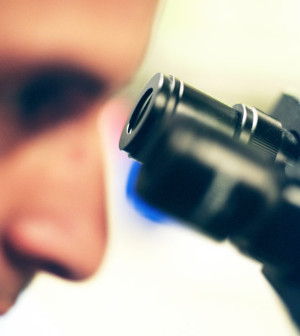- Could Your Grocery Store Meat Be Causing Recurring UTIs?
- Are You Making This Expensive Thermostat Error This Winter?
- Recognizing the Signs of Hypothyroidism
- 10 Strategies to Overcome Insomnia
- Could Artificial Sweeteners Be Aging the Brain Faster?
- Techniques for Soothing Your Nervous System
- Does the Water in Your House Smell Funny? Here’s Why
- Can a Daily Dose of Apple Cider Vinegar Actually Aid Weight Loss?
- 6 Health Beverages That Can Actually Spike Your Blood Sugar
- Treatment Options for Social Anxiety Disorder
Still Tired After Getting Your Zzz’s? You Might Have Sleep Apnea

Many Americans will be feeling sleepy in the days after Daylight Saving Time starts. But some people with sleep apnea wake up feeling exhausted every morning.
More than 12 million Americans have obstructive sleep apnea, a condition that has been linked to high blood pressure, heart attack, stroke, traffic crashes, work accidents and depression, according to the U.S. Food and Drug Administration.
People with the condition have numerous breathing pauses during sleep, lasting from a few seconds to a few minutes. The most common type, obstructive sleep apnea, is caused by an airway blockage — typically soft tissue in the back of the throat collapsing, the agency said in a news release.
Men are almost twice as likely as women to have sleep apnea. Other risk factors include being overweight, being over 40, smoking, having a family history of the disorder, and having a nasal obstruction due to a deviated septum, allergies or sinus problems.
Sleep apnea can also affect children, with the most common cause being enlarged tonsils and adenoids.
Losing weight and avoiding alcohol or medicines that make you sleepy, which can make it harder to breathe, can be beneficial, according to the FDA.
The most common treatment is a continuous positive airway pressure (CPAP) machine, which delivers steady air pressure to keep airways open during sleep. If CPAP is ineffective, a device called the Inspire Upper Airway System can be used. It is surgically implanted below the collarbone and uses electrical pulses to stimulate the tongue muscles and keep airways open.
Another option is an oral appliance worn during sleep. It fits like a sports mouth guard and supports the jaw in a forward position to help keep the upper airway open, the FDA explained.
No drugs have been approved to treat sleep apnea, said Dr. Ronald Farkas, a neuroscientist in the FDA’s Center for Drug Evaluation and Research. Doctors sometimes prescribe drugs to help people with daytime sleepiness caused by sleep apnea, but these medications do not treat sleep apnea.
If you have sleep apnea and are taking other medications, you need to tell your doctor about them, he advised.
“A number of drugs can actually make sleep apnea worse, including many for insomnia, anxiety or severe pain,” Farkas said the news release.
More information
The U.S. National Heart, Lung, and Blood Institute has more on sleep apnea.
Source: HealthDay
Copyright © 2026 HealthDay. All rights reserved.










